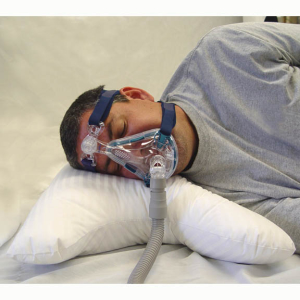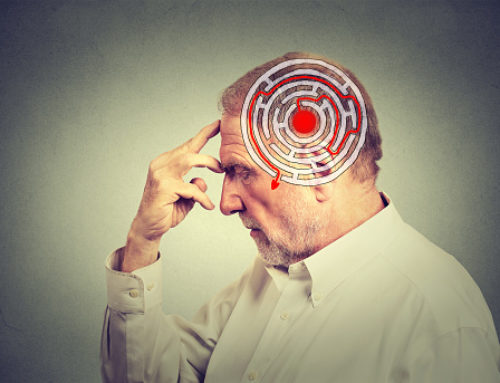People who survive a stroke often have some changes regarding their sleeping patterns. One of the biggest problems in stroke survivors’ sleeping is sleep related breathing issues. According to stroke.org, there are several conditions related to breathing during sleep after a stroke that you should be aware of.
Sleep Related Breathing Problems After a Stroke
Sleep related breathing disorders also are known as SRBD. This describes several conditions where there are either pauses in breathing or a lower intake of oxygen than is needed to support life. Stroke.org states that more than half of people who survived a stroke are affected.
The most common type of SRBD in stroke patients is obstructive sleep apnea, or OSA. This is where the airway closes up as you sleep. This can cause you to cease breathing, and then you will wake up so you can reopen your airway and breath again.
You should know that OSA can actually be a risk factor for stroke, and it also can affect you after the stroke. OSA also can cause you to have high blood pressure and atrial fibrillation. These are two major risk factors for people who have strokes. OSA also is alone a risk factor for stroke. Post stroke apnea also is common in people who had several strokes.
Some other SRBDs include:
- Upper airway resistance syndrome: This is similar to sleep apnea. The problem with breathing here is with the upper airway, rather than deeper in your throat, as occurs in sleep apnea.
- Central sleep apnea: This is quite different from OSA, because air intake and the effort to take a breath stop. Patients who have this do not take in oxygen, and do not try to breathe.
- Chyene-Stokes breathing: This is a sort of breathing pattern that is related to central sleep apnea.
- Hypopnea: Breathing in a low amount of air.
Symptoms of Sleep-Related Breathing Problems
- Waking up with you holding your breath, or possibly gasping and choking
- Dozing off a lot during the day
- Not feeling refreshed when you wake up
- General fatigue
- Insomnia
- Loud snoring and interruptions in breathing
How to Treat
Most of the treatments for sleep-related breathing problems after a stroke are all related. You should check with your doctor to determine the best way to treat this condition.
CPAP Machine
One of the most effective ways to treat sleep related breathing problems is continuous positive airway pressure (CPAP). This utlizes a machine to deliver bursts of air that will prevent your airway from being obstructed. The machine’s settings are usually determined in the laboratory and then you will take the machine home with you. The machine is only the size of a toaster. The stroke patient will need to wear a mask when she sleeps, and a tube will deliver the air.
As you are recovering from your stroke, you should also keep in mind that there are many stroke supplies available to help you with sleeping better. The 30 Inch Safety Bed Rail With Padded Pouch will help you to prevent falls from bed. And, the Bed Caddie will help you to pull yourself to a sitting position when you wake up.
Sleeping problems after a stroke are quite common, but with the appropriate treatment plan from your doctor, you will find that you can overcome them.



